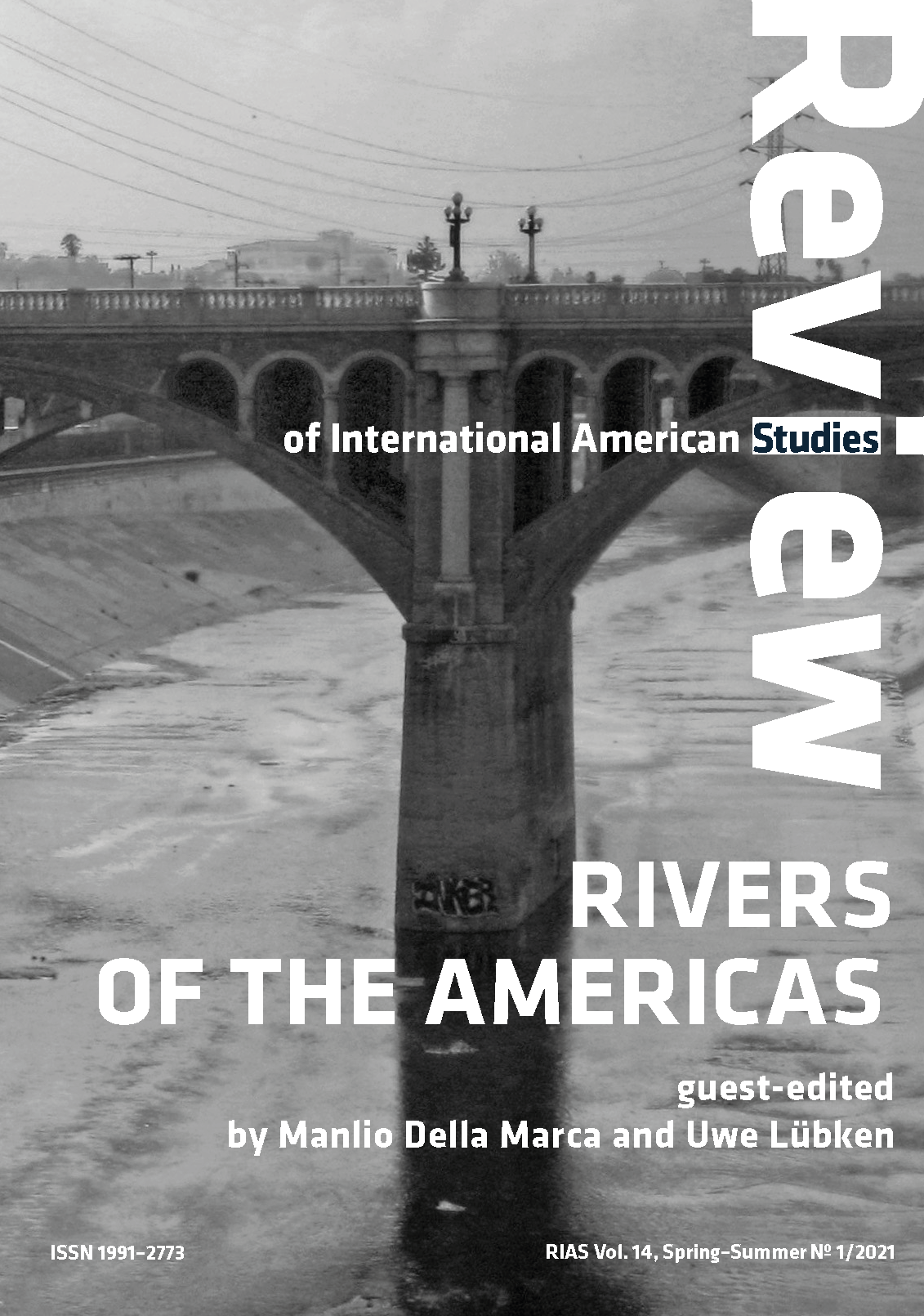Vol 14 No 1 (2021): Rivers of the Americas—RIAS Vol. 14, Spring–Summer (1/2021)
Over the past three decades, rivers have become a fascinating and popular subject of scholarly interest, not only in the field of environmental history, where river histories have developed into a distinct subgenre, but also in the emerging field of environmental humanities. In this scholarship, rivers have often been reconceptualized as socio-natural sites where human and non-human actors interact with the natural world, generating complex legacies, path dependencies, and feedback loops. Furthermore, rivers have been described as hybrid “organic machines,” whose energy has been utilized by humans in many different ways, including the harvesting of both hydropower and salmon. Indeed, as several environmental historians have noted, in many regions of the world, watercourses have been transformed by technology to such an extent that they increasingly resemble enviro-technical assemblages rather than natural waterways. Rivers have also been discussed through the lens of “eco-biography,” a term coined by Mark Cioc in his influential monograph on the Rhine River, a book informed by “the notion that a river is a biological entity—that it has a ‘life’ and ‘a personality’ and therefore a ‘biography’.” Quite surprisingly, despite this “river turn” (to use Evenden's phrase), rivers have played a marginal role in recent American Studies scholarship. To address this gap, this issue of RIAS brings together scholars from different disciplines, countries, and continents to analyze a wide variety of river experiences, histories, and representations across the American hemisphere and beyond. Hence the title of this volume, Rivers of the Americas, should be seen as both an allusion to the Rivers of America book series (a popular series of sixty-five volumes, each on a particular US river, published between 1937 and 1974) and as a reminder of the still untapped potential of hemispheric, transnational, and comparative modes of critical engagement with rivers in American Studies. (Read more in Manlio Della Marca and Uwe Lübken's Introduction).


